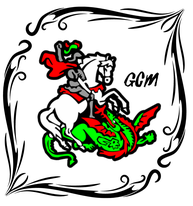I am back of #februaryinleo, and today, for the #worldonthursday, I will blabber about happiness and meaning, something that looks similar, but it is not really, even if the two concepts touch each other here and there.
“Happiness is a life lived according to virtue,” said Aristotle, but that was what people were thinking more than 2000 years ago. The general idea in those times was that happiness takes an incredible amount of work, discipline and devotion, and most people, in the end, are simply not up to the task. Even today, you may find this idea partially creeping in, but in one way they were right, and that to have a happy life, or a meaningful life, or both, you need to work towards it. You can make any dream a reality, but sometimes you need to work for it. As time went by, some other modern thinkers messed up with our happiness, and in the 19th century, we have John Stuart Mill saying this: “Ask yourself whether you are happy, and you cease to be so.”
Well, even if we agree or not, a happy life and a meaningful life have some differences. Surprisingly, happy people satisfy their wants and needs, which seem largely irrelevant to a meaningful life. Therefore, health, wealth, and ease in life were all related to happiness, but not meaning. There are even more differences. Happiness involves focusing on the present, whereas meaningfulness involves thinking more about the past, present, and future—and the relationship between them. In addition, happiness was seen as fleeting, while meaningfulness seemed to last longer. Can you choose wisely? Let's say that meaningfulness is derived from giving to other people; happiness comes from what they give to you. Meaningful lives involve stress and challenges. To add to this, self-expression is important to meaning but not happiness.
Most of these ideas were generally ignored until recently, as since the beginning of the 20th century, a lot of effort went into studying anxiety, even more into the fear study, while good feelings like happiness, compassion or love were mostly ignored. But then, if you think, even now, there are a lot of researchers studying the mentally impaired, as opposed to people performing at a genius level. If you are curious, something like 8 years ago, we had more than 17000 studies on cognitive impairment and only 5 studies on geniuses.
One of the more surprising findings from a happiness study was that giving to others was associated with meaning, rather than happiness, while taking from others was related to happiness and not meaning. Interesting, right? But then, there are two kinds of happiness. One is “eudaimonic happiness,” or the happiness that comes from meaningful pursuits, and “hedonic happiness”—is the happiness that comes from pleasure or goal fulfilment. Can you guess which one are we looking for these days? The hedonic one, of course, as we look for pleasure, more and more, ignoring anything else in our journey to achieve it. We are transforming into a hedonic world. Ans we should not, as a 2008 article in the Journal of Happiness Studies reports several positive health effects that have been associated with eudaimonic happiness, including less reactivity to stress, less insulin resistance (which means less chance of developing diabetes), higher HDL (“good”) cholesterol levels, better sleep, and brain activity patterns that have been linked to decreased levels of depression. For centuries, traditional wisdom has been that simply seeking pleasure for its own sake doesn’t really make you happy in the long run. seeking happiness without meaning would probably be a stressful, aggravating, and annoying proposition. Work toward long-term goals; doing things that society holds in high regard—for achievement or moral reasons. You draw meaning from a larger context, so you need to look beyond yourself to find the purpose in what you’re doing. My SaturdaySavers plan to retire early and achieve financial independence brought me great meaning and happiness, as I do neverending work, making me think that the journey is the important bit and not the final goal. Making a lot of friends on Hive, feeling good while I am reaching outrageous targets (every year, when I make The Plan, I put a sensible target - like last year, going for 5500 Hive powered up, after I started with 4000, and then I write a number that is at least twice, sometimes even ten times more. I can tell you, that I finished the year with 53K Hive, just a bit under the 55K and Orca status that I was just dreaming of achieving, but which I reached in February. Same for Leo and everything else on my list.)
Do not forget. happiness can be poison or medication, it is all about the dose. Take pride for example, this is good when you work towards an objective and you achieve it. But if you feel like that all the time, then problems tend to appear. Too much happiness can have bad, unintended consequences. Think about the story about genies, that can make any desire real, for a price. That is the key. Or to quote Thanos in the Infinity War:
-Did you do it!
-Yes.
-What did it cost?
-Everything.

All the best,
George

Why not...
...have fun and win rewards on my favourite blockchain games (Splinterlands- Hearthstone-like card game) (Mobox - GamiFI NFT platform) (Upland - real-life virtual land) (Holozing - Pokemon-like game)and (Rising Star - Music creators game).
...Get ETH while writing on Publish0x blog, using Presearch search engine to maximize your income with PRE tokens. Use Torum instead of Twitter . I am also writing for crypto on Read.cash and Hive.
Posted Using InLeo Alpha